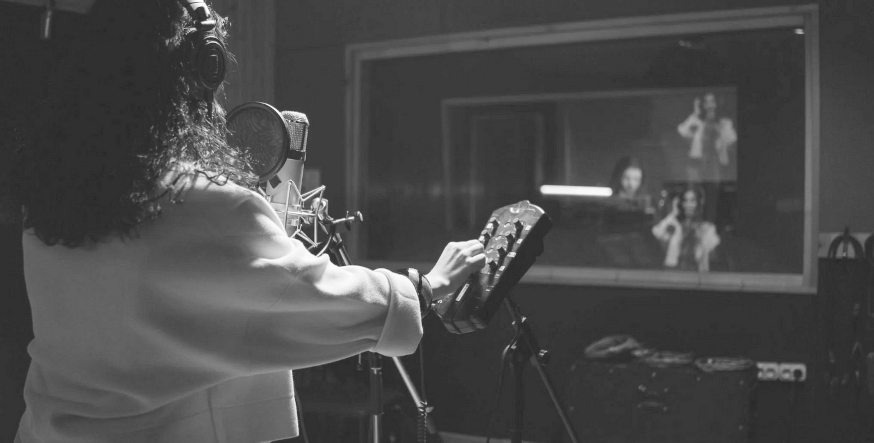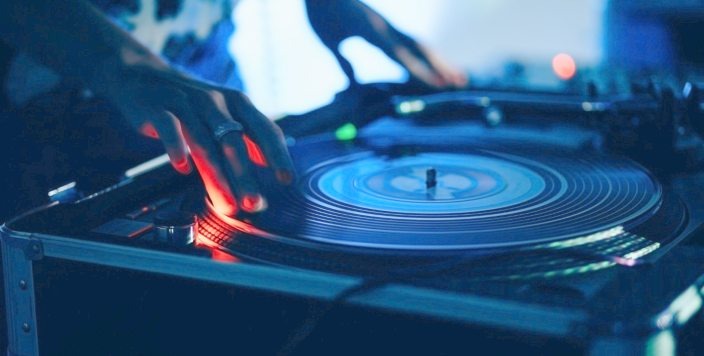Introduction to Music Artist Development
In the dynamic world of music, the path to success for independent musicians is often riddled with challenges. This is where music artist development becomes a crucial element, transforming raw talent into polished performers. But what exactly is music artist development, and why is it so important?
Music artist development refers to the comprehensive process of nurturing and enhancing a musician’s skills, image, and marketability. It’s the behind-the-scenes work that turns a good artist into a great one. With the rise of independent musicians, the landscape of artist development has evolved significantly, offering new opportunities and approaches to building a successful career.
In this blog post, we will explore the essentials of music artist development, providing independent musicians with valuable insights and practical tips to thrive in the competitive music industry.
Understanding the Music Industry
The Role of Music Artists in the Industry
Music performers are crucial in the business. They are the imaginative brains behind the tunes and performances that enthrall listeners. Through their work, musicians can emotionally connect with others on a very profound level. They can arouse inspiration, entertainment, and intellectual challenge. The driving force behind the business is that musicians shape its direction and set its trends.
Artists who want to flourish in the music business must grasp the dynamics of the industry and the several participants engaged. Every entity shapes an artist’s career powerfully, from record companies to managers, agents, and promoterscantly. Strong ties with these crucial players help artists negotiate the business more skilfully and raise their prospects of success.
But the music business is constantly changing. Thus, musicians must keep updated on recent developments and difficulties. Artists have to change with the times, from the emergence of streaming services to the influence of social media. Artists who keep ahead of the curve and seize fresh chances will set themselves up for long-term success.
Key Players in the Music Industry
Several major stakeholders are essential for an artist’s growth in the music business. These Music artist development individuals comprise record companies, music publishers, managers, agents, and promoters. Each of these people serves a different function and helps an artist succeed.
Record companies are responsible for finding and signing gifted musicians. They offer the tools and funds required for musicians to create and share their works. Music publishers, working with artists, guard intellectual property rights and provide appropriate pay for their creations.
Managers handle daily operations, contract negotiations, and the direction of an artist’s career strategy, thereby playing a crucial role in their lives. Agents assist musicians in securing gigs, negotiating contracts, and industry contacts. Organizing events, marketing and promoting an artist’s music to a larger audience, and generating hype around their work fall to promoters.
Successful artists in the competitive music business depend on establishing a solid network of essential stakeholders. Working with these experts will enable musicians to negotiate the business, get recognition, and realize their potential.
Trends and Challenges in the Music Industry Deve
The music business constantly changes, so musicians must be current with the newest trends and issues. Developing songs that appeal to listeners is one of the business’s main difficulties. Songwriting calls for knowledge of musical structure, imagination, and narrative ability. It is communicating feelings and events in a way that will appeal to listeners. Knowing how to create memorable, relevant, and appealing songs can significantly enhance an artist’s career.
Building a Strong Foundation

Defining Your Artistic Identity
Defining your artistic identity requires knowing who you are as a performer and what distinguishes you from others. This is the basis upon which your music career will grow. Spend time considering your musical inspirations, experiences, and the feelings you wish to express with your work.
Investigating several musical genres and styles helps you develop your creative individuality. This will enable you to find what you enjoy most and what speaks to you. Experiment and venture outside your comfort zone without fear.
Finding your voice is yet another crucial component of developing your creative personality. Your voice speaks not just of your rapping or singing technique but also of the message you wish to transmit and the tales you want to share via your music.
These guidelines will assist you in defining your creative identity:
- Think back on your musical inspirations and personal encounters.
- Test several musical genres and styles.
- Discover your message and voice.
Crafting Your Unique Sound
Developing your music career depends critically on creating your sound. It distinguishes you from other musicians and makes you stand out in a saturated field. If you want to create your sound, you must investigate many musical genres and styles, play with several instruments and sounds, and discover your voice as an artist. This approach calls for time, commitment, and a readiness to challenge limits and run risks.
Developing your sound requires an awareness of your influences. First, listen to various songs and then note the components that speak to you. Do the raw intensity of rock music or R&B’s seamless melodies appeal to you? Knowing your musical inspirations will help you combine ideas from several genres into your work and produce something original.
Developing your technical abilities is also quite crucial in determining your sound. Regular practice of your instrument or singing will help you to reach greatness. You will have greater flexibility to express yourself creatively the more skilled you grow.
Apart from experimenting with other genres and improving your technical abilities, working with other musicians might enable you to create your own sound. Collaborating with other musicians lets you absorb fresh ideas into your work from their points of view. It may also present chances for development and experimentation.
Recall that developing your sound is never stopped. It calls for lifelong learning, experimentation, and introspection. Accept the road ahead, challenge yourself creatively, and take calculated chances.
Developing Your Brand
Establishing yourself as a music artist depends first on developing your brand. Your brand consists of your image, values, and general experience you offer your audience, not just your music. Developing your brand depends much on monetization techniques since they let you make money from your music and other associated events. Investigating several monetizing methods item sales, live events, and licensing prospects helps you generate income sources and improve your financial security as an artist.
Creating Compelling Music

Songwriting Techniques and Strategies
Regarding songwriting, you may use several approaches and devices to produce exciting work. Many musicians use Ableton as one of their most used applications. This digital audio workstation offers many tools to improve your songwriting process. Experimenting with many sounds, loops, and effects with Ableton can help you discover the ideal mix for your music. It is also easily navigable, which qualifies for both novice and professional musicians.
Arrangement and Production
Making interesting music depends heavily on arrangement and production. Arrangement is the way the several musical components of a song are arranged and structured. Along with their placement and time, it includes choosing which instruments and voice sections will be employed. Conversely, production concentrates on the technical elements of recording, mixing, and music mastering. It helps produce a sleek, businesslike sound.
Regarding layout, one should consider the song’s dynamics and flow. A well-organized layout helps the music have a more emotional effect and keeps the listener interested. Experimenting with many instrument combinations, chord progressions, and melodies can produce a distinctive and unforgettable sound.
Focusing on detail during production is important. The outcome can be much improved by using top-notch recording tools and equipment together with software. Additionally, considering the harmony and clarity of every instrument and vocal track is crucial. Assembly-line methods can simplify the manufacturing process and guarantee uniformity and efficiency.
These guidelines apply to efficient production and layout:
- Try several instrument combinations to get fascinating layers and textures in your work.
- Throughout mixing, focus on the balance and clarity of every instrument and vocal track.
- Use automated methods to give your music movement and dynamics.
- To improve your output, think about working with seasoned engineers or producers.
- Recall that developing interesting music depends mostly on arrangement and production.
Spending some time to carefully polish these features can help your music have a much greater overall impact.
Collaborating with Producers and Songwriters
The development of a musician depends critically on working with producers and composers. Good teamwork depends much on strategic planning. It entails giving the project’s aims and objectives great thought, as well as considering the strengths and knowledge of every partner. Strategic planning and cooperation help musicians maximize their creative ability and produce music appealing to their listeners.
Working with producers and songwriters requires good communication. Open and honest communication lets ideas, comments, and creative contributions flow between you. Establishing a common vision and keeping a team mentality throughout the process is crucial. This guarantees that everyone engaged is aiming towards a shared objective and that the result captures team creativity and vision.
Apart from correspondence, time management is another crucial element of working with producers and songwriters. Establishing reasonable deadlines and schedules guarantees that all the participants may fulfill their obligations and helps to keep the project under control. Effective planning, organization, and coordination are, therefore, absolutely vital. Time management allows artists to keep pace and prevent unwarranted delays or setbacks.
Furthermore, adaptation and flexibility are included in a cooperative approach. Over the creative process, music projects might develop and veer from one path. Exciting and creative music results from being receptive to fresh ideas, experimenting with many sounds and styles, and seizing unanticipated possibilities. Artists should be ready to change and correct to provide the most significant potential result.
Last but not least, successful teamwork depends on mutual respect and trust. Long-term success in the music business depends on developing close ties between songwriters and producers. Artists may create a good and efficient workplace by appreciating and honoring one another’s efforts. Harmonious and effective cooperation is made possible by trusting in colleagues’ knowledge and creative vision.
Promoting Your Music

Building an Online Presence
After you have developed your sound and created your creative identity, you should concentrate on creating an online presence. In the digital era, musicians must be very visible online to interact with their audience and advertise their music. In this sense, social media channels are rather crucial since they let musicians interact with their supporters more intimately and reach a larger audience.
Think through the following techniques to properly establish an internet presence:
- Establish a professional website: Your music and brand center around a well-designed hub. It should highlight your music, offer details on forthcoming shows and albums, and have a contact page for booking questions.
- Use social media: Pick the sites that fit your target market, regularly post updates and behind-the-scenes material, and communicate with your following. Popular venues for musicians are Instagram, Facebook, and Twitter.
- Collaborate with influencers: Work with music industry influencers to help you reach more people and expose them to fresh listeners. Search for people that fit your style or genre and work on material or advertising campaigns.
- Engage with your audience: React to comments, emails, and mentions to interact with your audience. Show thanks for their help and foster a community around your music.
Recall that developing an internet profile is a continuous endeavor. Establishing a successful online presence that appeals to your audience mostly depends on consistency, authenticity, and quality material.
Utilizing Social Media Platforms
Social media channels have evolved into effective instruments for musicians trying to reach their audience and advertise their work. Artists now have the chance to get a broad spectrum of listeners and establish a significant online presence as platforms like Instagram, Facebook, and Twitter gain greater appeal. Artists may interact with their fans more personally, provide updates about their music, and foster community through social media sites.
It lets them present their originality and interact with like-minded people who value their work. Social media channels also give musicians and industry experts a venue for working together, strengthening their network, and raising output.
Engaging with Fans and Building a Fanbase
Developing a strong and committed following requires interaction with your supporters. It’s about personal connection with your audience, not only about producing outstanding music. Tools can enable you to interact more easily with your fans and simplify your efforts at fan involvement.
Engaging your fans and keeping them informed on your most recent initiatives and events may be accomplished with the help of social media sites such as Twitter and Instagram. Personalized newsletters and updates to your supporters’ email addresses can also be sent using Mailchimp and other email marketing systems. These instruments help you build community and make your supporters valuable and appreciated.
Read Also: Effective Music Collaboration Strategies
Navigating the Music Business

Understanding Contracts and Agreements
Knowing contracts and agreements is vital for negotiating the music business. In this sense, education is essential since it lets you defend your rights and make wise judgments. Contracts spell the terms and conditions of your relationships with record companies, publishers, and other business associates. Review and negotiate these agreements carefully to be sure your interests are safeguarded. Furthermore, knowing the legal terminology used in contracts will assist you in staying clear of possible legal hotpots and conflicts down the road.
Managing Finances and Royalties
Navigating the music business mainly depends on your ability to manage your money and grasp how royalties operate. Knowing your income and expenses as a musician helps you guarantee financial security and career success by clearly comprehending these factors.
Budgeting is the foundation of financial management. Making a budget helps you monitor your revenue and expenses, guiding your resource allocation choices. Establishing financial goals and tracking your expenditures can guarantee that you are making appropriate investments and optimizing your returns.
Apart from financial planning, one must have a strong knowledge of royalties. Royalties are payments made to musicians for the use of their works. They can originate from live events, radio play, and streaming platforms; ensuring you are paid for your efforts depends on knowing how royalties are computed and dispersed.
Use these ideas to handle your royalties and money properly:
- Maintaining thorough records of your income and expenses helps.
- Work with a qualified music industry-focused accountant or financial advisor.
- Keep educated about variations in royal rates and distribution strategies.
- Review and revise your budget often to represent variations in your income and spending.
- Consider saving and investing some of your income to guarantee your financial future.
Working with Music Industry Professionals
Working with music industry pros can be vital for your success when negotiating the music business. These experts know and have the experience to help you negotiate the convoluted terrain of the company. Developing contacts with industry professionals can open doors and present great chances for fresh starts, whether selecting the appropriate management, contacting a booking agent, or working with a producer.
These are some salient features to bear in mind while dealing with members of the music business:
- Communication is key: The key is communication. Any professional relationship needs open, honest communication. To guarantee a good working connection, precisely express your wants, expectations, and objectives.
- Trust and Respect: Developing respect and trust among business leaders is vital. Treat them as partners and value their knowledge and opinions.
- Networking: Take advantage of opportunities to meet and interact with business leaders. Participate in business events, join associations for professionals, and interact with the music community.
FAQS
How to develop a music artist?
Developing a music artist involves a series of steps that focus on enhancing their skills, refining their brand, and building a strong market presence. Start with a thorough assessment of the artist’s strengths and weaknesses, set clear goals, and create a tailored development plan.
Invest in skill enhancement through training and practice, establish a cohesive brand and image, and implement effective marketing and promotion strategies. Continuous feedback and evaluation are crucial for ongoing improvement.
What is artist development in music?
Artist development in music refers to the process of nurturing and enhancing a musician’s skills, image, and marketability. It involves working closely with the artist to identify their strengths, address areas for improvement, and create a unique and authentic identity. The goal of artist development is to transform raw talent into a polished performer with a strong brand and a loyal fanbase.
Does artist development exist today in the music industry?
Yes, artist development continues to play a vital role in the music industry today. While traditional record labels have historically been responsible for artist development, the rise of independent musicians has led to new approaches and platforms. Independent artists can now access a wide range of resources, technology, and expert guidance to develop their careers. Artist development companies, online courses, and DIY tools have made artist development more accessible than ever before.
Conclusion
In conclusion, music artist development is a critical component of a successful music career, especially for independent musicians. It involves a comprehensive approach to nurturing talent, refining skills, and building a strong brand. By understanding the fundamentals, navigating industry trends, overcoming challenges, and utilizing technology and resources, artists can unlock their full potential and achieve their dreams.
For those looking to take their music career to the next level, consider partnering with a music artist development company or exploring artist development programs. These avenues offer expert guidance, valuable networking opportunities, and access to industry resources that can accelerate your growth.
Remember, the journey of music artist development is unique for every artist. Stay committed, stay passionate, and stay true to your artistic vision. Your dedication and perseverance will pave the way for a successful and fulfilling music career.
Unlock your full potential as a music artist with Hypertribe! Our membership program focuses on Music Artist Development, offering personalized guidance and resources to help you thrive in the industry. Join Hypertribe membership today and connect with a community dedicated to nurturing talent and providing exclusive opportunities. Transform your passion for music into a successful career with a company that understands your needs and supports your growth every step of the way.



